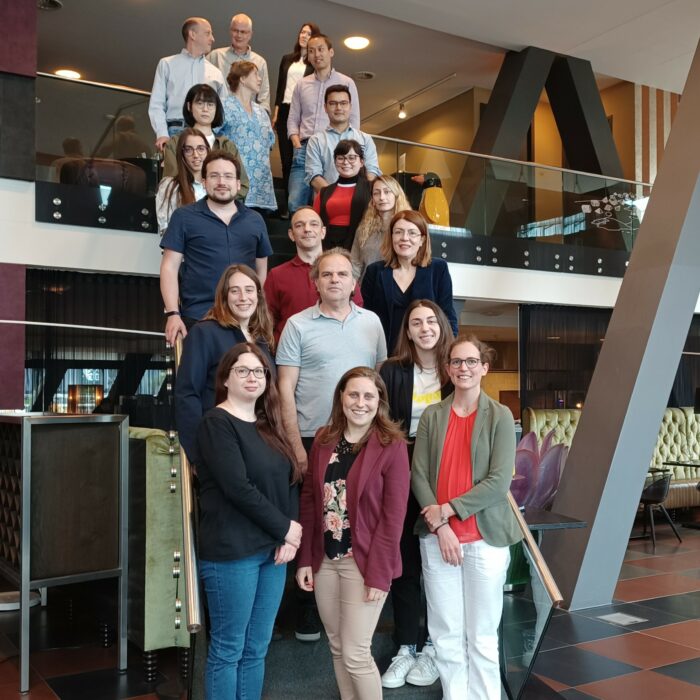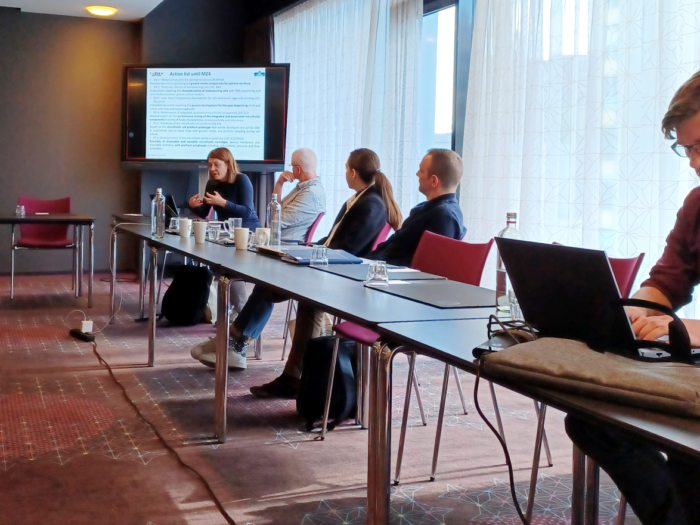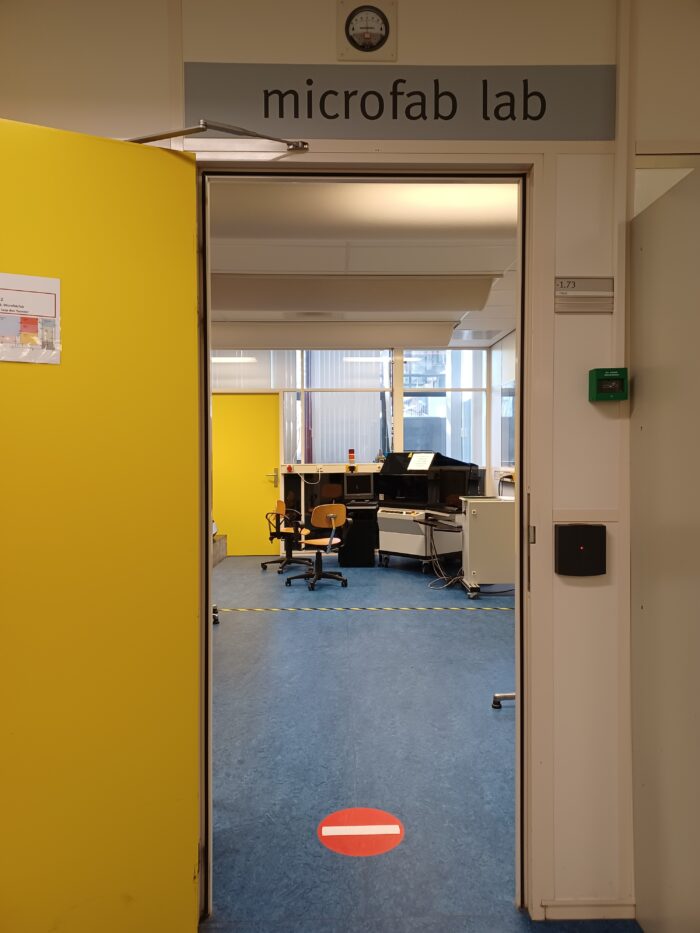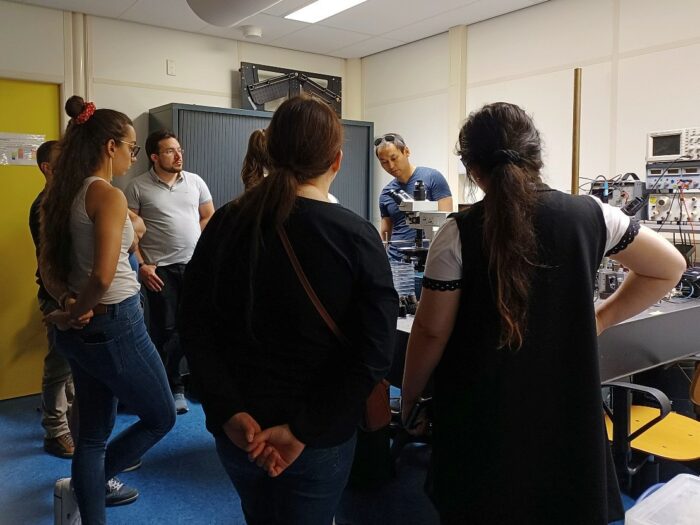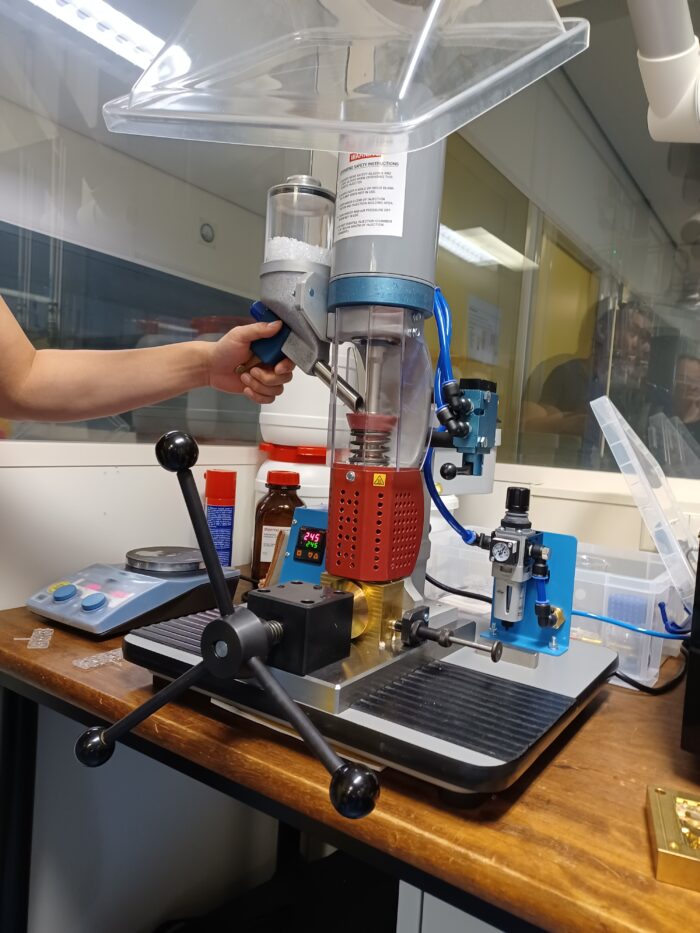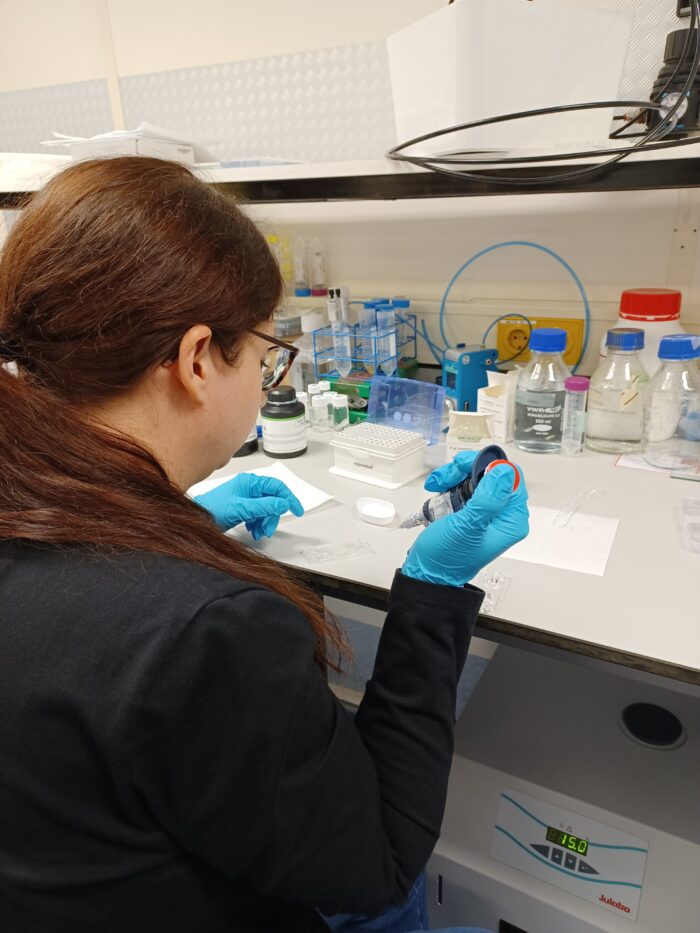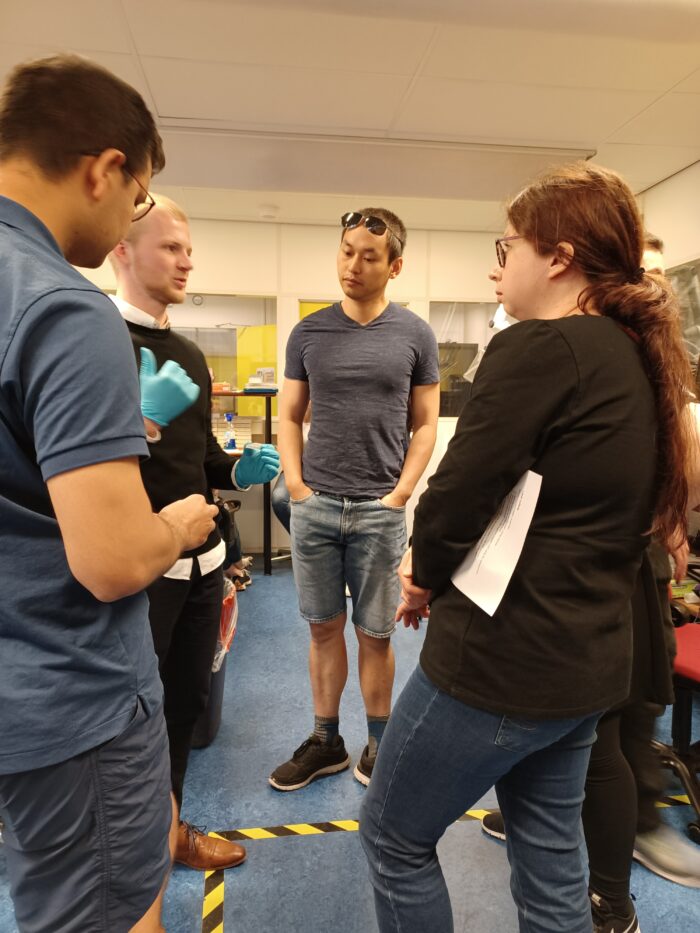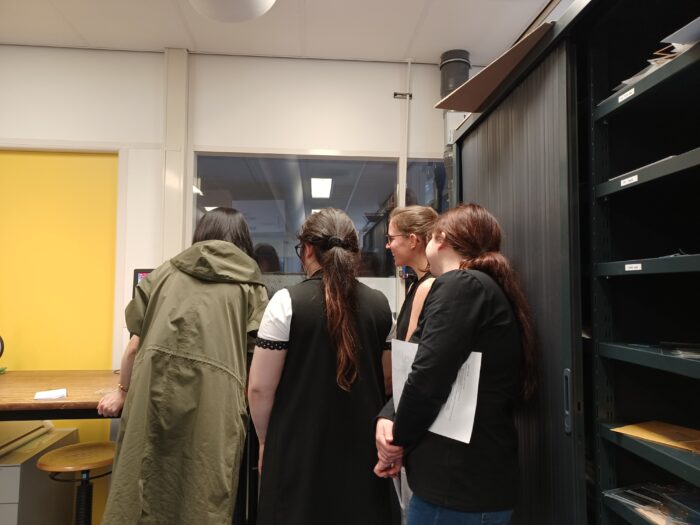Working towards a Tumor-Lymph Node-On chip platform – Progress and achievements after 1 Year of Tumor-LN-oC
May 18, 2022Last week, the Tumor-LN-oC consortium met at TU/e in Eindhoven for the project’s 1-year progress meeting. The agenda focused around sharing updates, jointly solving any challenges that occurred and planning the next steps in project implementation, but also made time for informal discussions and networking between the partners.
Discussions mainly focused on experiments around cell migration and the interaction between the tumor and lymph node cells, as well as the progress and further development in the Tumor-LN-oC components, which will one day form the Tumor-LN-oC platform: the specification of co-culture materials, processes and media by AAU and BRFAA, the microfluidic cartridges designed and fabricated at TU/e, the micro-optics module from coordinator ICCS, the MIP spectroscopy module developed by partners TUW and ALPES Lasers, the real-time imagining software module developed by Rayfos, the microfluidic peripherals supplied by Elveflow, as well as the laser bioprinting process by PhosPrint. In addition, partners discussed the initial regulatory roadmap prepared by Asphalion and the dissemination and communication, as well as commercialisation efforts of the consortium led by AMIRES. Lastly, a workshop in the TU/e Microfab laboratory on the last day gave all team members a hands-on experience of the various steps of fabricating the Tumor-LN-oC microfluidic chip.
Celebrating 1 year of Tumor-LN-oC
The Meeting officially concluded the first year of the project, which was appropriately celebrated over a common dinner. In order to reach the ultimate objective of the project – a TRL 5 tumor-lymph node-on-chip platform which will connect surgically removed human primary tumors and lymph node tissue (LN) from the same lung cancer patient on the chip (a “biological twin” of the patient) – a lot of work remains to be done. Nevertheless, the platform, which will offer various analytical possibilities to analyse the cancer patient’s LN metastasis activity and monitor the treatment response, seems one step closer.
We are grateful to our partners and supporters for their commitment to the project and for improving the understanding and treatment options for patients with lymph node metastasis. We are looking forward to continuing the work in the three years of project implementation!
